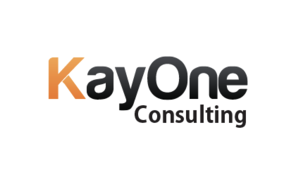Is Y Combinator Worth It in 2023?
The Y Combinator is a U.S.-based startup accelerator started in May 2005. It has become one of the best accelerators, having funded companies like Airbnb and Coinbase. In this article we see if Y Combinator is worth it.
Building a successful startup requires tremendous hard work, a bit of luck, and extensive guidance. Most startup founders are new to entrepreneurship, knowing little about successfully running great companies, creating great products, and improving their financial metrics. All they have is an incredible passion for their ideas and a desire to make them successful.
With the right mentors, founders can channel their enthusiasm for their ideas in the right direction. Mentors can leverage their experience to guide founders, helping them marry what they offer with what the market needs. There is no shortage of mentors for early-stage startups, but Y Combinator remains the most popular and desirable option.
What is Y Combinator?
Y Combinator (YC) is among the world’s leading startup accelerators. It invites thousands of applications from startups worldwide twice a year. It offers funds and guidance to the best of them. Y Combinator invests $500,000 in multiple startups, provides three-month mentorship, and gives access to its excellent global alum network. This brings a common question to all founders – Is Y Combinator worth it?
The Y Combinator program was started in March 2005 by Paul Graham, a computer scientist who was fresh off selling his company to Yahoo. Graham formed a three-month boot camp in Cambridge, Massachusetts, with Jessica Livingston, a banker who later became his wife, acting as his collaborator.
The boot camp saw participation from eight founder teams, including the skilled hackers who built Reddit and Sam Altman, the current CEO of OpenAI.
[monsterinsights_popular_posts_inline]
The idea behind Y Combinator is to provide guidance and seed investment to worthy startups. Y Combinator takes about 7% of the company’s equity, ensuring they stay committed and do everything in their power to help startups succeed. For almost 18 years, Y Combinator has lived up to this mission, with the program launching several companies whose combined valuation has exceeded billions.
Notable names like Dropbox—Y Combinator’s first IPO—Airbnb, CoinBase, DoorDash, and OpenSea have all leveraged Y Combinator’s expertise to become successful companies employing thousands of people and launching great products.
But expertise isn’t the only thing these companies derived from their time at Y Combinator. The startup accelerator provides tons of benefits that help startups at every stage.
Benefits of Y Combinator
In order to decide if Y Combinator is worth it, it is important to understand the benefits of Y Combinator:
Strong alum network
Y Combinator has existed for over 18 years and has funded 3000 companies and 7000 founders, some becoming billion-dollar-plus organizations.
It is one of the standout benefits of the program, as new startups can lean on the expertise of their predecessors, who might have faced the same problems and worked in the same industry. Partners are also available at every step, ensuring further help.
Yearly camp
Summer camps were super fun as kids. Like-minded people would gather to engage in an engaging activity of interest to everyone in the group. Y Combinator applies the same formula to its network.
The startup accelerator annually hosts a formal gathering of its alums, where industry experts gather for workshops and summer camp-style activities. New entrants can significantly benefit from the camp, as they can exchange ideas, problems, and more with peers.
[monsterinsights_popular_posts_inline]
Group sessions
Partners at Y Combinator keep regular tabs on their group, giving them targets and helping them achieve them. Group office hours are an initiative that proves helpful. The sessions, held every other week, feature companies and their YC partners working together in an office to share their growth and challenges.
It keeps founders on their toes but also helps them solve their product or business problems with their group members without worrying about their company secrets getting out.
Investment
Companies enrolled in the Y Combinator startup accelerator program are beginning their journey, and some might not even have a product. Y Combinator proves helpful here as it offers early-stage startups seed money.
The startup accelerator invests $500,000 on standard terms, and it is split into two safes:
- An initial $125,000 is provided on a post-money safe. YC takes 7% of the company in exchange.
- The remaining $375,000 is given on an uncapped safe with a Most Favored Nation (MFN) provision.
Founders can also secure funding for their product on Demo Day. It is an invite-only event where the latest batch of YC companies presents their working model to thousands of investors.
Learnings through workshops and mini-conferences
YC alums enjoy access to workshops and mini-conferences. These events, sometimes hosted and attended entirely by YC alum, cover various topics central to startups and businesses, like hiring, sales, and design. Startups and founders can learn a significant deal about multiple subjects and carry those learnings to bring success to their teams.
Access to free tools
Only some startups are profitable in their first few years of operations. Most of them are strapped for cash in their early days, and reducing cash burn can help improve their fundamentals and chances of raising funds at better terms in the future.
YC can help here as every YC company is provided free access to various accounts and discounts on business tools. This can help startups save valuable money and reduce costs.
Community platform
All Y Combinator members get access to Bookface, a platform that allows founders to connect with fellow YC founders, discuss problems, and find solutions. It is a combination of Facebook, LinkedIn, and Quora, where founders can create their profiles, share their problems, and seek answers from YC alums who they think can help improve and test their products.
This gives founders easy access to advice and guidance from industry experts who have built billion-dollar companies and solved critical business problems.
[monsterinsights_popular_posts_inline]
Are there any cons to Y Combinator?
As a founder, when deciding whether Y Combinator is worth it, you also need to see if there are any cons. Y Combinator is an excellent program, but that doesn’t mean it’s perfect. According to the founders, here are a few cons of the YC startup accelerator:
Intense pressure
The three months founders spend as part of the YC program are relentless. It’s like a business school squeezed into three months, with founders interacting with each other. The pressure can be too much, especially for those with jobs and a family.
Selling substantial equity
Companies coming to Y Combinator usually don’t have a finished product. They have demos and ideas about their potential product. YC helps them create it; in exchange, it takes 7% of the company. It is a substantial equity dilution for companies just beginning their journey.
Additionally, $125,000 seed money may seem a lot initially, but it’s not enough for a company to sustain its operations.
Not enjoyable if you have a product
The program designed by YC makes sense for companies having a demo and not a product. Those who already have a working product may derive little value and find the three-month YC program less enjoyable.
[monsterinsights_popular_posts_inline]
Does Y Combinator make sense in 2023?
The world changed in 2020 for everyone, including startups. Internet adoption increased significantly, and everything, from grocery shopping to doctor consultations, came online. Startups and seed investments weren’t left behind; for more than a year, companies, including those without a product, raised funds online.
A few things have changed since then, and the question must be asked: is a three-month on-site startup accelerator program like the YC relevant today?
For most startups, yes. YC’s track record speaks for itself. The startup accelerator has funded some of the finest internet companies, including Amplitude, Coinbase, and DoorDash worldwide, helping them disrupt and own their space, build a great product, and create value for shareholders. Industry experts and founders who’ve been there and done all provide excellent mentorship and guidance to founders.
The incredible alum network YC boasts of is a gold mine that founders can access throughout their lives.
Many founders also speak highly of the friendships they build during the three-month YC startup accelerator program. Founders often recall meeting some of their best friends at YC. People are friendly and willing to help solve problems for their fellow admits, no matter their domain.
Raising funds online or through other means doesn’t promise such benefits. Startups need help and guidance throughout their journey to becoming successful companies. Startup accelerators like Y Combinator provide precisely that, making them a unique and valuable option for early-stage startups.
[monsterinsights_popular_posts_inline]
Closing note
In this article, we have attempted to see if Y Combinator is worth it in 2023. Early-stage startups require the same care and hand-holding as kids on their first day of university. Online tools may help with seed funding and a few connections, but the extensive guidance and mentorship that startups get with Y Combinator hold a unique value.
Founders can lean on partners and fellow founders in the startup accelerator program to build incredible products, find the right team, and learn how to make their businesses stand out.




